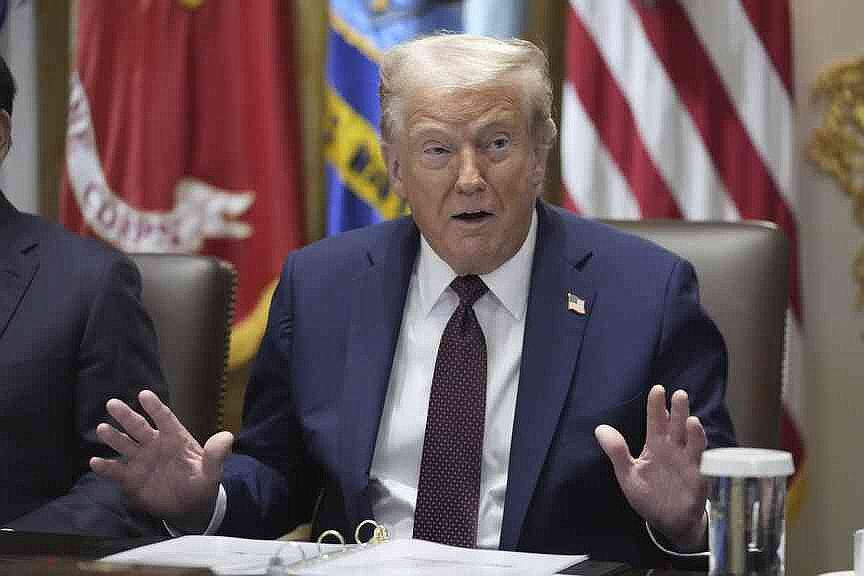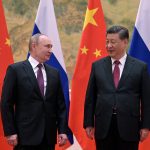In a landmark decision, the U.S. Appeals Court has overturned key tariffs imposed during the Trump administration, ruling that former President Donald Trump exceeded his legal authority. This ruling not only reshapes America’s trade policy but also sparks a broader debate over executive power, economic consequences, and the future of U.S. relations with its global trading partners.
Trade wars were among Trump’s most controversial policies, often justified as tools to protect American workers and industries. Yet, they also drew criticism for escalating tensions, disrupting global supply chains, and burdening consumers with higher costs. The court’s decision now marks a turning point, forcing the nation to reassess the limits of presidential power in economic policy.
Background of Trump’s Tariffs
When Donald Trump entered the White House in 2017, one of his earliest promises was to confront what he called “unfair trade practices.”
The 2018 Trade War Launch
In 2018, the Trump administration imposed sweeping tariffs on steel, aluminum, and a wide range of goods imported from China, Europe, Canada, and other trading partners. These tariffs ranged from 10% to 25%, affecting billions of dollars in imports.
The administration argued that tariffs were necessary to:
- Protect U.S. manufacturers.
- Safeguard national security.
- Create leverage in trade negotiations with China and the European Union.
The Backlash
However, the policy faced fierce resistance from:
- Farmers, who saw retaliatory tariffs devastate agricultural exports.
- Businesses, which reported higher costs for raw materials.
- Consumers, who bore the brunt of price increases.
By 2019, analysts estimated the tariffs had cost U.S. households an average of $1,200 annually in higher prices.
The Legal Challenge
The central question brought before the Appeals Court was whether President Trump had the legal authority to impose these tariffs under existing trade laws.
Key Legal Arguments
- Exceeding Presidential Authority – Plaintiffs argued Trump went beyond what was authorized under the Trade Expansion Act of 1962 and the International Emergency Economic Powers Act (IEEPA).
- Lack of Congressional Approval – Critics noted that tariffs, being a form of taxation, constitutionally fall under congressional authority.
- Arbitrary Justification – The administration’s justification of “national security” was seen by many as overly broad and inconsistent.
The Court’s Findings
The U.S. Appeals Court concluded:
- Trump overstepped his authority by using trade statutes in ways not intended by Congress.
- The tariffs were not properly justified under national security grounds.
- The executive branch cannot unilaterally redefine its trade powers.
Economic Consequences of Trump’s Tariffs
The tariffs reshaped global trade, with ripple effects across multiple industries.
Impact on American Farmers
- Soybean exports to China dropped by over 70% in 2018 after retaliatory tariffs.
- The federal government spent over $28 billion in bailout programs to offset losses for farmers.
Impact on Manufacturers
- Companies like Harley-Davidson announced plans to move some production overseas to avoid tariffs.
- Auto manufacturers reported rising costs for steel and aluminum, reducing competitiveness.
Impact on Consumers
- Studies from the Federal Reserve found that nearly 100% of the tariff costs were passed on to U.S. consumers.
- Everyday products such as washing machines, electronics, and even clothing became more expensive.
Political Implications of the Ruling
The court’s decision reverberates far beyond economics, striking at the core of presidential authority.
For Trump and His Supporters
Supporters argue the tariffs were a bold move to protect American industries. They view the ruling as judicial interference in matters of national interest.
For Democrats and Critics
Critics hailed the ruling as a victory for constitutional checks and balances. Many Democrats emphasized that Congress must reclaim its authority over trade policy.
For Future Presidents
The decision sets a precedent, signaling that presidents may face greater judicial scrutiny when using trade laws as tools for political leverage.
Global Reactions
The reversal of Trump’s tariffs was closely monitored worldwide.
China’s Response
China welcomed the ruling, framing it as proof that Trump’s trade war was built on shaky legal grounds. Beijing hopes the decision could ease tensions in future trade talks.
European Union and Allies
The European Union, Canada, and Mexico, all of which faced Trump’s tariffs, expressed cautious optimism. Many leaders view the ruling as an opportunity to reset trade relations with the U.S.
Expert Opinions
Legal experts, economists, and trade analysts offered varied perspectives.
Legal Scholars
Professor Laurence Tribe of Harvard Law School commented:
“This ruling is a clear reminder that presidential powers are not limitless, especially when it comes to matters explicitly delegated to Congress.”
Economists
Economist Chad Bown of the Peterson Institute stated:
“The tariffs not only hurt American businesses but also undermined trust in the global trading system. The court’s decision is a step toward restoring credibility.”
How the Ruling Affects U.S. Businesses Now
With the tariffs overturned, businesses are adjusting.
Short-Term Relief
- Import costs on certain goods are expected to drop.
- Small businesses dependent on foreign supplies will see immediate benefits.
Lingering Uncertainty
- Companies remain cautious, as trade policy could shift again under political pressure.
- Supply chains disrupted during the trade war will take years to fully recover.
Lessons Learned from the Trade War
Four Major Lessons
- Trade Wars Have Real Costs – Consumers and farmers suffered heavily.
- Executive Overreach Faces Limits – Courts remain a powerful check.
- Global Trust Matters – Tariffs eroded U.S. credibility as a stable trade partner.
- Congress Must Act – Long-term reforms require legislative solutions, not unilateral action.
FAQs
What tariffs did Trump impose that were overturned?
The tariffs mainly targeted steel, aluminum, and a wide range of Chinese imports.
Why did the Appeals Court overturn the tariffs?
The court ruled that Trump exceeded his authority under trade laws and failed to justify the tariffs properly under national security grounds.
How did the tariffs affect American consumers?
Studies showed nearly all tariff costs were passed to consumers, raising household expenses significantly.
Did farmers benefit from the tariffs?
No. Farmers were among the hardest hit, losing export markets and relying on billions in government aid.
What does this ruling mean for future presidents?
It signals that executive authority in trade matters will face greater judicial scrutiny, limiting unilateral tariff actions.
Conclusion
The U.S. Appeals Court’s decision to overturn Trump’s tariffs is a defining moment in both trade policy and constitutional law. It demonstrates that while presidents may act boldly, their authority has limits grounded in the separation of powers.
Trump’s tariffs reshaped global trade, but at a steep cost to American farmers, businesses, and consumers. The ruling restores balance by reaffirming Congress’s constitutional role in overseeing trade and taxation.
As the U.S. looks ahead, this case will stand as a reminder that economic policies must be both legally sound and strategically sustainable. The future of trade will depend not on unilateral moves, but on balanced cooperation between government branches and America’s global partners.








